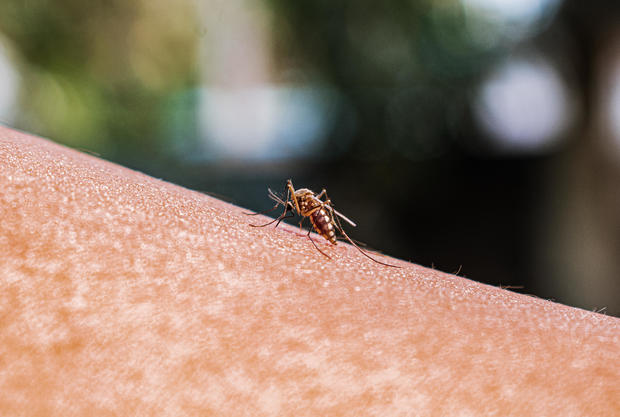What is malaria? What to know as Florida, Texas see first locally acquired infections in 20 years
Within the last two months, four locally acquired cases of malaria were confirmed in Florida and one in Texas, according to the Centers for Disease Control and Prevention, marking the first time in 20 years that the potentially fatal mosquito-borne disease has been transmitted within the United States.
“Locally acquired cases” mean the infections were not linked to foreign travel and appear to have been spread by mosquitoes in the U.S. carrying the parasite that causes the illness.
“Malaria is a medical emergency and should be treated accordingly,” the CDC wrote in a Health Alert Network Health Advisory. “Patients suspected of having malaria should be urgently evaluated in a facility that is able to provide rapid diagnosis and treatment, within 24 hours of presentation.”
Here’s what else to know about the disease.
How is malaria transmitted?
People typically get malaria by being bitten by an infective female Anopheles mosquito.
“This means that we have had malaria spread into the mosquito population here, which means that the risk for getting malaria here in this country is higher than it used to be… and that is really concerning,” said Dr. Céline Gounder, a CBS News contributor and editor-at-large for public health at KFF Health News.
The disease is most common in tropical climates, putting nearly half the global population at risk, according to the World Health Organization. WHO estimates there were about 247 million cases of malaria worldwide in 2021, and 691,000 deaths. The vast majority of cases and deaths occurred in Africa.
Soumyabrata Roy/NurPhoto via Getty Images
Less commonly, “Malaria can also be transmitted through blood transfusion, organ transplant or the shared use of needles or syringes contaminated with blood,” the CDC’s website reads. “Malaria may also be transmitted from a mother to her unborn infant before or during delivery.”
The diease is not contagious between humans, meaning it can’t be spread from person to person like a cold.
“It cannot be sexually transmitted, (and) you cannot get malaria from casual contact with malaria-infected people, such as sitting next to someone who has malaria,” the CDC says.
What are malaria symptoms in humans?
Mild symptoms may include headache, fever and muscle aches, Gounder told CBS News.
Symptoms may also include nausea and vomiting, diarrhea, abdominal pain, fatigue, rapid breathing, rapid heart rate and cough, according to the Mayo Clinic.
More severe symptoms include change in mental status as well as lung and kidney failure. And if not promptly treated, the infection can also cause seizures, coma and death.
“Severe malaria can be deadly and it is a medical emergency,” Gounder said. “So people who have signs and symptoms of malaria should get checked out as quickly as possible.”
Symptoms typically begin about 10 days to 4 weeks after a person was infected, “although a person may feel ill as early as 7 days or as late as one year later,” the CDC notes.
Is malaria fatal?
Yes, severe malaria can be deadly — but there are treatments available. Gounder advises people who have signs and symptoms of malaria to get checked by a doctor as quickly as possible.
Is there a cure for malaria?
The illness can be treated and cured with prescription medications.
Several factors go into determining the best treatment plan, according to the CDC, including the patient’s clinical status, the type of infecting parasite, where the infection was acquired as well as any potential drug allergies and other medications taken.
Timing of treatment is key and should be initiated as soon as possible, the CDC says.
Malaria prevention
While most malaria cases are connected to people who have traveled out of the country, the CDC advises the public to take steps to prevent mosquito bites and control mosquitoes at home.
To prevent bites, experts advise using insect repellent and wearing loose-fitting, long-sleeved shirts and pants. The CDC and WHO recommend insect repellents with active ingredients that include:
- DEET
- IR3535
- Oil of lemon eucalyptus (OLE)
- Picaridin (KBR 3023)
CBS Miami notes some repellents are not suitable for children: DEET is not recommended for children younger than 2 months old, while lemon eucalyptus oil should not be used on children under 3 years old.
At home, use screens on windows and doors to help keep mosquitoes out, and use air conditioning if it’s available. You can also help stop mosquitoes from laying eggs by reducing any standing water near where you live.
“Once a week, empty and scrub, turn over, cover or throw out items that hold water, such as tires, buckets, planters, toys, pools, birdbaths, flowerpots or trash containers,” the CDC suggests.
Aliza Chasan contributed to this report.
For all the latest Automobiles News Click Here
For the latest news and updates, follow us on Google News.


